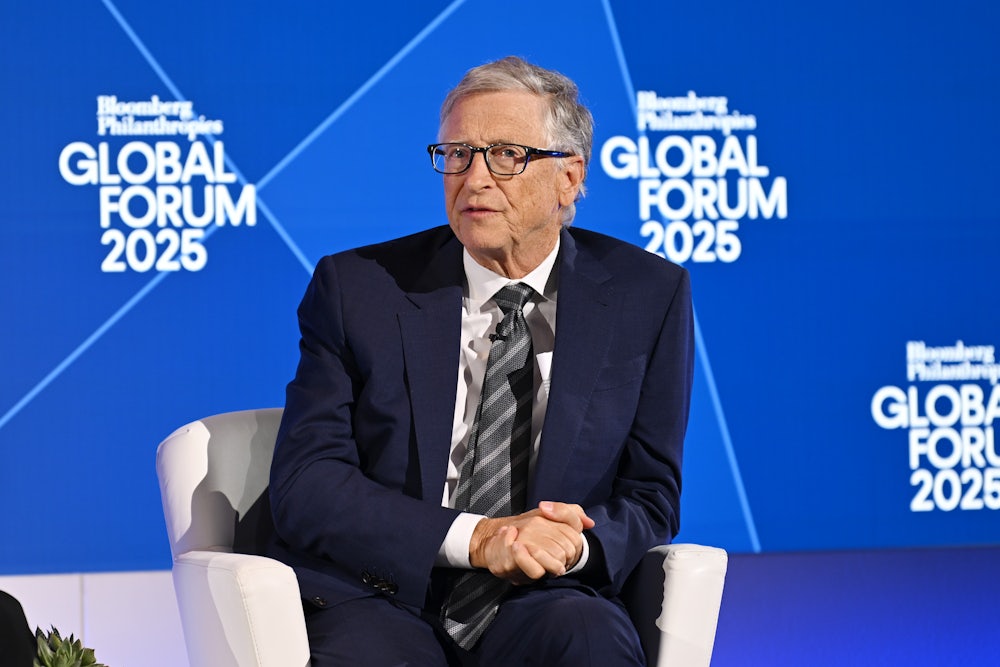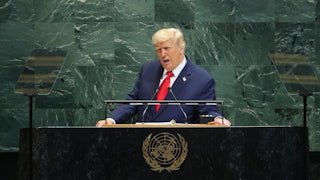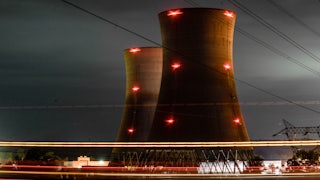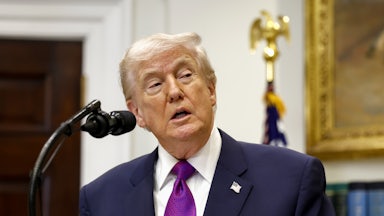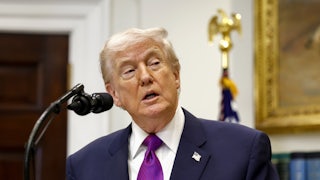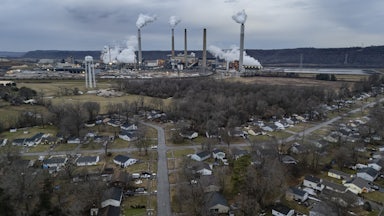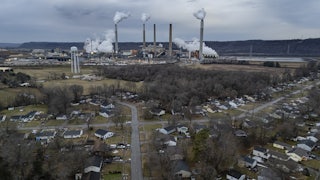As Hurricane Melissa, a Category 5 storm described as “one of the strongest Atlantic storms ever recorded” approached Jamaica on Tuesday, newspapers also sported headlines about a memo by Bill Gates saying climate change won’t be “humanity’s demise.” The absurdity of having a billionaire’s thoughts about climate change splashed on the home page of The New York Times while its “live updates” on Hurricane Melissa roll out at the top of the page cannot be overstated. We have known for years that people are dying in bigger and deadlier hurricanes linked to climate change—as reported on a NASA website that I am surprised is still allowed to be up. The water and wind battering homes and hospitals in Jamaica offers live proof of how climate change is threatening humanity, right now. But whose humanity, I guess, is the question.
The bigger and deadlier hurricanes happening now are the climate crisis coming to bear, but only for some of us. Those in the poorest countries will carry the weight of climate change, as will disabled people, who are often left behind and ignored during climate crises no matter where they occur in the world, with mortality rates four times higher than people without disabilities. As the poorest and most devalued across the globe suffer, U.S. billionaires in the top 0.1 percent generate 4,000 times the emissions that the world’s poorest 10 percent do. But none of that matters because Gates and other billionaires will still get to have their thoughts, and their bunkers too.
In the memo, Gates did pay lip service to the reality of his and other billionaires’ emissions, and noted that the poor will be disproportionately affected by climate change, but he still characterized worry about this as a “doomsday” approach. He writes, on the website Gates Notes that catalogs his thoughts, “The doomsday outlook is causing much of the climate community to focus too much on near-term emissions goals, and it’s diverting resources from the most effective things we should be doing to improve life in a warming world.” Instead, he says, we should adjust to this new, warmer planet—as though working with urgency both to limit warming and adapt to it to protect the most vulnerable among us is a zero-sum game. But Gates’s contradictory logic—or his apparent belief that his purchase of “legitimate carbon credits” redeems his own enormous emissions—is beside the point: We shouldn’t be giving the opinions of billionaires this much weight, anyway.
To be sure, billionaires’ decisions are sometimes important to report because their thoughts can lead to actions that affect us all. That’s because they have consolidated so much power and so many resources—economic, material, and social—that their activities threaten the rest of the globe. By using headlines as a thought-chyron for billionaires, rather than as an opportunity to call attention to the problem of their obscene wealth consolidation, news outlets risk legitimizing billionaires’ hyper-privileged viewpoints through clicks. This can perpetuate flawed understandings of reality, driven by people with the morally questionable motivation to be wealthier than most countries across the globe.
Billionaires’ reflections are often reported with little attention to the deeper social and structural issues that frame the issues affecting the rest of us. Billionaires live above any social or economic constraints, yet their thoughts are reported with the apparent expectation that readers will accept this inanity as actual news, as accurate facts, rather than musings of a person untouched by the material problems of the world. How can Gates’s claim that climate change won’t be humanity’s demise be taken seriously when he has all the resources in the world to live well and protected, regardless of the consequences of climate change? Why do we care what he says about this when it is those who are most vulnerable who will actually bear the effects? Reporting the thoughts of billionaires as news is as grotesque as the amount of wealth they’ve been allowed to accumulate.
As I skimmed The New York Times’ Hurricane Melissa updates, another billionaire surfaced: Some Jamaican users, the paper reported, were staying online using Starlink, Elon Musk’s satellite service. Musk is another billionaire whose thoughts apparently warrant headlines; a day before Gates’s memo came reportage on Musk’s passing (and preposterous) thought that “AI research into ancient Rome will ‘rewrite history.’” In another story three days prior, outlets instead reported Musk’s musing that AI might be bad—but that he’d still like to see it. “So yes, even if AI wipes us all out,” finance site Benzinga reported, “he still wants a ticket to the show.” We don’t need reporting on these wealth hoarders’ thoughts, we need reporting that exposes how the state is complicit in allowing such wealth consolidation, and the consequences this has for the rest of us.
Speaking of AI, the climate change catastrophes Gates now minimizes are intimately bound up in the environmentally devastating AI sector. As AI eats up thousands of gallons of water, data centers associated with this sector are causing drought and other environmental disasters. Meanwhile, our politics have been bought by the extremely rich due to the lack of checks on campaign finance in the U.S., and a president is in power who is looking only to satisfy his grievances and to make his buck. But rather than sound the alarm on this techno-broligarchy poisoning society and the environment, news outlets seem to be pumping out a steady diet of billionaire brain dumps. Is it that they think we think even their most inane ideas deserve our consideration? Perhaps it’s that news organizations believe we’ll ignore the problem of the billionaire—and allow them to keep ignoring it too—and hang on the billionaire’s every word, instead.
Just last week, in the year 2025, a thought Jeff Bezos had nearly 24 years ago apparently warranted a Fortune news headline. Your stress isn’t caused by work, the article reported him saying back in 2001, it’s caused by ignoring things you shouldn’t be ignoring. On second thought, maybe that billionaire is right about something.
